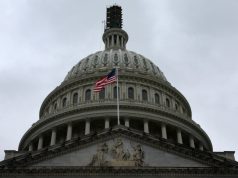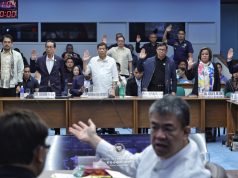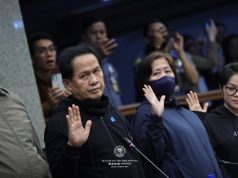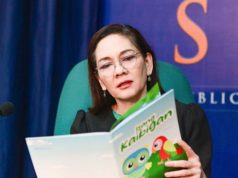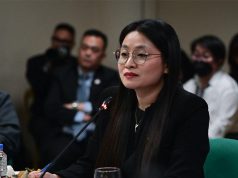Originally posted on Newsbytes.ph
The resignation of DICT secretary Rodolfo Salalima should not lead to the “low-batt, offline” implementation of projects and reforms in the ICT (information and communications technology) sector, Sen. Ralph Recto said on Friday, Sept. 22.
“After power and water, broadband is the third utility, and that importance is reflected in the national budget, which authorizes billions of pesos in making Internet ‘fast, free and fair,” Recto said.
“So I hope that the Department of Information and Communications Technology, despite being the youngest department, has a deep talent pool from where Secretary Salalima’s replacement will be picked so there will be no — to use a telco term — service interruption,” he said.
“In the government’s ‘build, build, build hindi lang mortars ang gagawin, pero portals din. Not just roads but also information highways,” Recto said.
Recto said the newly-signed Free Internet Access in Public Places Act has a proposed budget of P1.74 billion next year, for the rollout of 5,308 new WiFi hotspots. On top of said funding is a proposed P1.2 billion to lay the groundwork for a national broadband system, Recto added.
Both allocations are in the proposed 2018 budget of the DICT of P6.9 billion, almost double from this year’s P3.6 billion, the senator pointed out.
Also included in next year’s funding is P422 million for the development of a centralized portal allowing individuals to make transactions — from filling out forms to payment — online.
In his budget message for fiscal year 2018, Duterte said the “National Government Portal” is needed because “our citizens deserve first class service.”
The NGP will “eliminate the need to physically go to offices or visit multiple agencies’ website to perform transactions,” Duterte said.
Recto urged Duterte “to make sure that the new DICT secretary he appoints will not only be able to realize this campaign promise of his but also work in making internet fast and reliable.”
Recto, who both authored and sponsored the law creating the DICT and the Free Public WiFi Act, said the latter goes beyond installing public WiFi access points to mandating reform in the telecom sector.
In the free WiFi law are provisions that improve Internet speed, better broadband services, and slash the red tape that retards ICT growth, Recto said.
Recto said Republic Act 10929 also promotes fair competition and bars unfair business practices.
“The DICT, in coordination with the National Telecommunications Commission, shall be allowed the free use of available and unassigned spectrum for the free public internet access program,” he said.
The law requires the NTC to “provide minimum standards for quality of service, including but not limited to download speed, latency, packet loss, and jitter for public free internet service.”
To date, the free WiFi project has been allotted P4.81 billion. By the end of the year, it is projected that 13,024 sites covered by 18 “Points of Presence” in 1,489 towns and 145 under the Free Public WiFi Project will be up and running.
Overall, the project aims to roll out 23,631 sites by 2018, expanding it four-fold to 100,349 by 2026.
The multiyear rollout program targets for coverage 1,880 public elementary schools, 2,688 public high schools, and 682 state and local public college campuses this year and in 2018.




